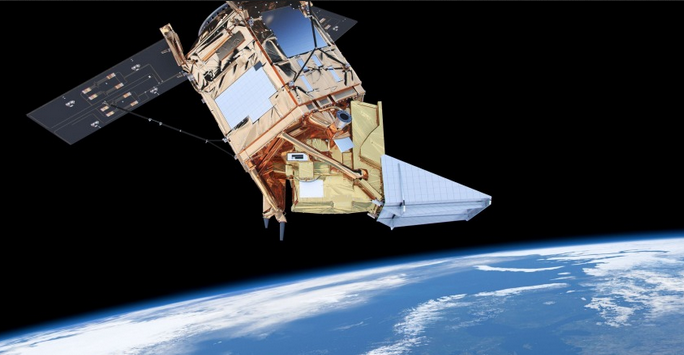

This company has contributed to the success of the different NEXT satellite launches, including Monday's success and the upcoming launch on October 13.
On Monday, October 9th, the third batch of Iridium NEXT satellites were launched from Vandenberg Air Force Base on a Falcon 9 rocket.
This batch of 10 is part of the 70 telecommunication satellites that should be in orbit by mid-2018, for the network to span the globe. These satellites will orbit the Earth at an altitude of 780km, on six different orbits. With a planned service life of up to 15 years, smooth operation of the satellites is contingent on stable temperature conditions in their interior. This reliability is achieved by means of thermal insulation supplied by RUAG Space Austria.
A covering made up of several layers of wafer-thin metalized polyimide film protects the satellites against the extreme temperature variations they encounter on their orbits. Despite their relatively modest size of 3.1 x 2.4 x 1.5 m, each Iridium NEXT satellite requires 147 individual insulation parts.
At the end of same week, on October 13th, the European Sentinel 5-P Satellite will be delivered to orbit on a Rockot launcher from Plesetsk Cosmodrome. A precursor mission, the satellite aims to fill in the data gap and provide data continuity between the retirement of both ESA’s Envisat satellite and NASA's Aura mission, until the launch of Sentinel-5. Multi-layer insulation from RUAG Space covers the entire satellite, in order to ensure constant internal temperature levels over the current life cycle expectancy of seven years.
Peter Guggenbach, CEO RUAG Space, commented that their thermal insulation is the product of choice for both institutional and commercial missions, as clearly demonstrated by these two impending satellite launches. Automation has accelerated the throughput time for the manufacturing of thermal insulation – which enables them to be on the forefront of cost saving measures.
RUAG Space is also contributing instrument control units on both of the aforementioned satellite products. For Iridium NEXT, RUAG built the Payload Interface Unit, which coordinates – as part of the central computer – signal transmission for steering the satellite, as well as for aligning the antennas and controlling the temperature system in the satellites. Furthermore, RUAG Space produced and delivered the slip rings in all 81 of the Iridium NEXT satellites, where they ensure the transmission of power and signals from the rotating solar panels to the satellites.

